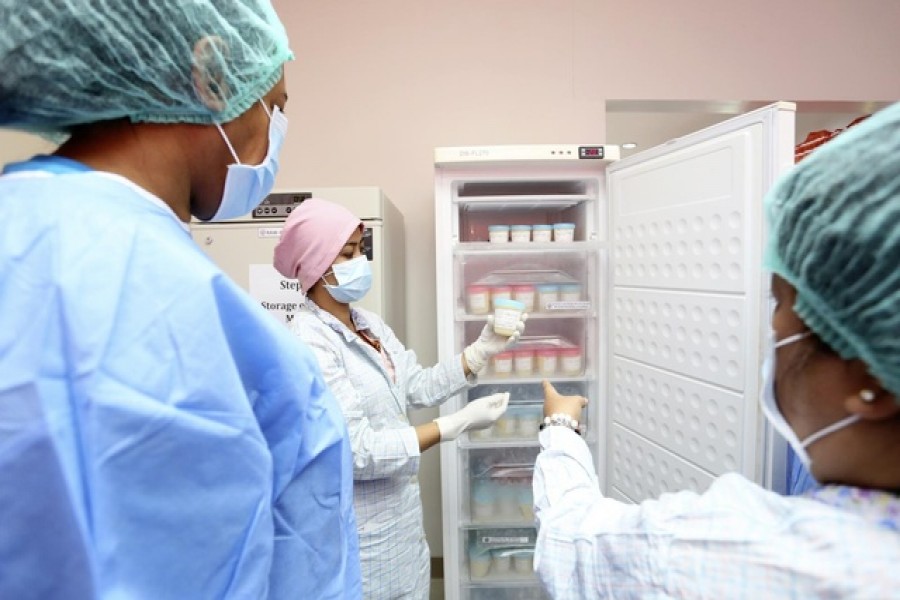A nongovernmental organisation has launched a new initiative to set up four human milk banks in Dhaka for motherless and vulnerable infants.
US-based Family Health International, or FHI 360, applied for the Directorate General of Health Services' permission to set up the milk banks on August 31.
Many babies lose their mothers at birth, while many women cannot produce breast milk for different reasons. Some produce such a low quantity of milk that it is insufficient for the infant.
For these babies, a human milk bank, where women can donate breast milk, is the answer.
FHI 360 wants to set up the milk banks at Bangabandhu Sheikh Mujib Medical University’s neonatal unit, Dhaka Shishu (Children’s) Hospital, Sir Salimullah Medical College Hospital and the Institute of Child and Mother Health or ICMH at Matuail.
It has signed deals with the healthcare facilities under a project named Strengthening Multisectoral Nutrition Project.
The ICMH had applied for permission to set up a milk bank two years ago, but the initiative stalled due to opposition by some hardline Islamists.
The hardliners had resisted the idea of a milk bank, arguing that it could create the risk of marriage between people who have drunk the milk of the same woman, something forbidden in Islam.
Dr ABM Khurshid Alam, director-general of the DGHS, stressed the need for human milk banks in Bangladesh, but said the final decision must be taken in consultation with all the stakeholders, including the religious leaders and the Islamic Foundation.
Dr Mohammad Shahidullah, former president of Bangladesh Paediatric Association who is also involved with the new initiative, said breast milk is essential for a baby's health and nutrition, while it also works as a guard against infections.
Currently, hospitals or families request other breastfeeding women to donate milk when a baby loses their mother or she fails to produce milk for reasons ranging from medication to certain medical conditions, reports bdnews24.com.
“But it’s not scientific. Questions from the religious side also arise on whether they keep a record of which baby is having which woman’s milk. So, the milk banks are necessary.”
According to a 2019 survey by the DGHS, neonatal mortality is 16 per thousand live births in Bangladesh. As many as 29 in every 1,000 children die before they reach the age of five.
Dr Gazi Masum Ahmed, an adviser to FHI 360, said the lack of breastfeeding is one of four reasons behind infant deaths in Bangladesh. Half of these babies can be saved if they are breastfed.
Babies need to be nursed within an hour from birth, but if the mother cannot produce enough breast milk, people resort to alternatives such as infant formula.
Dr Masum said babies who are deprived of breast milk in the first hour of their birth are vulnerable to necrotising enterocolitis, which makes them malnourished and suffer from diseases throughout their lives.
“Breast milk is necessary to prevent it. Milk banks can be helpful.”


